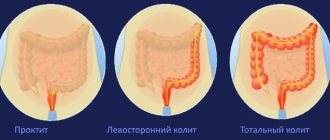The article was prepared by a specialist for informational purposes only. We urge you not to self-medicate. When the first symptoms appear, consult a doctor.
List of products and means:
Gastritis, expressed as inflammation of the gastric mucosa, is of two types: acute and chronic. In the first case, the main symptom is severe pain that appears suddenly. Often accompanied by nausea, vomiting, dehydration, and weakness. This type of disease often becomes chronic.
You can prevent the development of gastritis if you are careful about your diet. You should not eat too hot food, eat quickly and dry. The main cause of the disease is a violation of the diet. As a result, an attack of gastritis is possible. You can cope with stomach pain with the help of medications, but natural remedies are no less useful and effective.
Flax seeds for gastritis
Flax is a widespread plant used for its medicinal properties for various diseases. Various infusions are prepared from flax seeds. They are oily inside, the broth from them turns out thick and viscous. It gently envelops the walls of the stomach, relieving inflammation and reducing pain. This is due to the content of polysaccharides in the seeds, which have antibactericidal properties. The seeds do not have a pronounced taste or smell. Therefore, they can be used as an additive to many dishes.
A decoction of flax seeds. To do this, you need to brew 2 teaspoons of seeds in a glass of boiling water in the evening and leave until the morning. Before your first meal, drink a third of a glass (you should also drink the seeds), and distribute the rest evenly throughout the day. It is recommended to use the decoction for a month, even if the attack of acute gastritis has already passed. You can replace it with jelly made from flax seeds, mixing them with oatmeal or berries.
More details:
The benefits and harms of flax seeds, how to take them?
Erosive gastritis
Erosive gastritis is an inflammatory disease of the gastric mucosa, characterized by a violation of its integrity with the formation of single or multiple superficial lesions (erosions).
The main link in the pathogenesis of erosive gastritis is that protective mechanisms cannot withstand the aggressive effects of external and internal damaging factors on the gastric mucosa.
Mucosal damaging agents are varied:
- medicines;
- drugs;
- alcohol;
- stress.
Less commonly, Helibacter infection leads to the development of chronic erosive gastritis; in this case, the disease is often localized in the antrum of the stomach.
For a long time, erosive gastritis can occur with minimally expressed symptoms.
The main signs of erosive gastritis:
- slight dull pain in the epigastrium;
- nausea;
- heartburn;
- unstable chair.
Erosive gastritis manifests itself with bleeding, the signs of which are vomiting with blood and melena.
Treatment of erosive gastritis without bleeding includes: diet, PPIs, IGRs, antacids, antispasmodics, gastroprotectors, prokinetics.
During bleeding, blood transfusions and blood substitutes are prescribed, and, if necessary, surgical hemostasis is used.
Chicken stomachs for gastritis
Chicken stomachs are not only the basis for delicious dishes, but also a cure for stomach diseases. The medicinal properties are explained by the high content of various beneficial substances in them: folic acid, vitamins, iron. They allow you to improve the functioning of the stomach and cope with inflammatory processes in it.
The raw materials for preparing the folk remedy must be fresh. The effect of chicken stomachs that are more than 2 days old will be noticeably worse. The skin is removed from them, thoroughly washed with water and dried well. After all these procedures it will become completely transparent. Then the peel is crushed and May honey is added to it. Infuse the product for at least 3 days. After this, you can begin treatment with it, eating a teaspoon every day before meals. The course lasts a month, after which a break is required. It must be repeated 5-6 times to consolidate the achieved effect. It will take several days to get rid of pain using this remedy.
Treatment of ulcerative gastritis tablets
The doctor individually selects a list of medications that need to be used to treat the disease. The list includes:
- antispasmodics, painkillers that relieve pain - “No-shpa”, “Spazmalgon”, “Papaverine”;
- blockers (Gastrocepin), antacids (Almagel, Maalox, Rennie), which are necessary to regulate acidity;
- antiemetics that relieve nausea and vomiting - Motilium;
- drugs for regulating the functioning of the gastrointestinal tract: for diarrhea, Smecta is recommended, for constipation - Lactusan, Duphalac;
- medicines for flatulence - "Espumizan";
- antibiotics to combat Helicobacter pylori infection;
- enzymes such as Festal, Mezim;
- antihistamines - “Cetrin”, “Diazolin”.
Hormone therapy may be prescribed if necessary.
Potato juice for gastritis
Potatoes are rich in various beneficial substances: antioxidants, carotene, fiber, fats, starch, proteins. After heat treatment, most of these compounds are destroyed. Therefore, eating fried or boiled potatoes is not as beneficial for the body as fresh ones. But eating raw tubers is not very pleasant, in addition, they create additional stress on the stomach. It is better to use potato juice.
It helps cope with diseases of the digestive tract, especially gastritis. The main thing is that the juice must be freshly squeezed. 5-10 minutes after preparation, as in the case of heat treatment, it loses its medicinal properties. Juice from young potatoes is obtained using a juicer or gauze, first grating the root vegetables. You need to drink it before meals. Start eating after another 30 minutes. The course of treatment with this remedy lasts 10 days, with breaks.
Features of ulcerative gastritis
The chronic course of gastritis is dangerous because permanent inflammatory processes affecting the gastric epithelium sooner or later lead to the formation of erosions - damage to the mucosa, which are in the nature of small wounds. If the disease has reached this stage, they speak of erosive gastritis. Ulcerative gastritis is the unofficial name for this pathology (if you follow the Sydney classification).
As in the case of superficial gastritis, the provoking factors for its development into an erosive form can be a variety of reasons. If this occurred as a result of an exacerbation of the disease, we can speak of a destructive effect on the mucous membrane of the external aggressive environment. This can be poisoning from poor-quality food, chemical reagents (alkalis, acids), or taking a loading dose of certain medications. Contact of such a substance on the mucous membrane leads to a burn, which heals very slowly and poorly, since it is not possible to protect the damaged area from normal irritants (food, gastric juice).
Ulcerative gastritis is the unofficial name for erosive gastritis
If ulcerative gastritis occurs against the background of a chronic disease, in many cases the responsibility for this lies with dysfunction of the secretory activity of the stomach. As a rule, this is the result of systematic eating disorders (passion for fast food, fatty, spicy, salty foods) or internal gastrointestinal problems. Such processes are accompanied by a decrease/increase in the production of hydrochloric acid, and the inflamed mucosa is no longer able to regenerate the affected tissues at a speed that was sufficient in a normal environment.
Oil for gastritis
Vegetable oils are used as one of the remedies for gastritis. They must be combined with pharmaceutical medications that reduce acidity in the stomach. Oils, in turn, have the following properties:
- antibacterial;
- enveloping;
- anti-inflammatory;
- healing;
- tanning.
Sea buckthorn oil for gastritis
Vegetable oil from sea buckthorn fruits, due to its high content of carotenoids, is good for gastritis. They have a healing and anti-inflammatory effect. These properties also distinguish the vitamins B and E contained in sea buckthorn oil. Due to monounsaturated and polyunsaturated acids, such as stearic, palmitic, oleic, it gently envelops the walls of the stomach and relieves discomfort in various diseases.
A significant advantage of sea buckthorn oil for gastritis, unlike other remedies, is its ease of use. There is no need to mix it with other ingredients or insist. It is enough to purchase the oil and take a teaspoon twice a day in its pure form before breakfast and dinner. After a month, take a break, and then carry out another course of treatment. You can also use sea buckthorn oil to prevent gastritis. At the same time, it should be carried out in the fall and spring, when attacks of the disease are usually observed.
Flaxseed oil for gastritis
Flaxseed oil is as effective as the seeds. After all, this product is obtained by squeezing it out of them. It contains linolenic, linoleic acid and vitamin E, which are beneficial for digestion and immunity. The enveloping effect of flaxseed oil helps relieve pain during exacerbation of gastritis. It is important that it is cold pressed. The effect it has on the body depends on the quality of the oil.
This product can be used in its pure form or added to salads and fish. It tastes bitter, but is practically not noticeable in dishes. The properties are completely similar to flaxseed. In its pure form, for gastritis, the oil is taken one teaspoon orally, washed down with warm water, in the morning before breakfast and before bed. Treatment with this traditional method should be carried out for 3 months.
Olive oil for gastritis
Olive oil acts on the human body as a mild laxative and choleretic. It is rich in antioxidants, vitamins and unsaturated fatty acids. It has long been found that olive oil has a positive effect on the functioning of the digestive system and liver.
For gastritis, drink it in its pure form. It has a specific taste. You need to drink the oil on an empty stomach, a teaspoon every day for 3 months. Many people cannot use it as a medicine because of its not very pleasant smell and bitter taste. Therefore, you can add olive oil to prepared dishes. If you have cholecystitis, you should stop using it, including as a folk remedy for the treatment of gastritis. In rare cases, olive oil causes allergies.
What causes gastritis in adults?
“What causes gastritis in adults?” - this question naturally worries those who encounter this pathology for the first time. All the reasons why gastritis occurs in adults can be divided into external and internal.
External reasons include:
- Helicobacter pylori infection;
- drinking alcohol, smoking;
- errors in diet;
- stressful situations;
- taking ulcerogenic medications (drugs that lead to the development of stomach ulcers, for example, aspirin);
- occupational hazards.
Internal reasons include:
- hereditary predisposition;
- allergic diseases;
- autoimmune diseases;
- metabolic diseases;
- diseases of the cardiovascular system, in the stage of decompensation.
CG is a polyetiological disease, therefore the drugs used for treatment are different.
Rosehip for gastritis (only for low acidity)
Rosehip is a medicinal plant. In late spring and early summer, it is covered with fragrant white or pink flowers. After this, red-orange fruits form in their place. Rose hips are valued primarily for their huge content of vitamin C, which is several times more than in black currants and 10 times more than in lemon. The fruits also contain magnesium, calcium, iron, and tannins.
A medicinal decoction and infusion is prepared from rose hips:
Infusion. For 1 liter of hot water (40-60 °C) take 4 tablespoons of rose hips. Place everything in a thermos and leave for 8 hours. For gastritis with low acidity, rose hips can be drunk instead of tea, one glass, 3 times a day.
Decoction: crushed rose hips should be boiled in an enamel bowl for 2-3 minutes, whole ones - no more than 7 minutes. The longer the heat treatment, the less the effect of the resulting product will be. It is recommended to store the broth in a glass jar or thermos with a tightly closed lid, but no more than 3 days. For gastritis with low acidity, you should drink one glass of rosehip decoction every day, 3 times a day.
Attention: if the acidity of the gastric juice is high, it is not recommended to drink rose hips.
Aloe with honey for gastritis
Aloe helps enhance the production of gastric juice and enhance the contraction of its walls. This is necessary for hypoacid gastritis. It is accompanied by a decrease in acidity and a decrease in the amount of gastric juice. Therefore, aloe is an effective remedy for this type of disease.
For treatment, you should use the raw materials of a plant whose lifespan is at least 3 years. The leaves can be left in the refrigerator for several weeks beforehand. This procedure enhances the effectiveness of aloe. You need to drink juice 3 times every day. Mix a teaspoon of this natural medicine with honey, since in its pure form it has an unpleasant bitter taste. Use this product for 3 weeks.
According to another recipe, aloe juice and a spoonful of honey should be added to the wine and left for 14 days. Take a teaspoon of the product every day.
Chronic ulcerative gastritis treatment and prevention
It is important to consider that the development of gastritis is associated with a person’s emotional state. Stress, nervous tension, and depression contribute to the development of severe forms and the formation of erosions, so treatment and prevention must begin in a good mood.
Nutrition is very important. The daily diet should be divided into several meals. Between main meals there should be healthy snacks. Feelings of hunger should not be allowed to arise. It is also recommended to remove foods that increase gas formation from the diet. Gastritis occurs at any age. It is important to start treatment in a timely manner to prevent the development of a chronic form. Ulcerative gastritis, effective treatment, dietary recommendations.
Sources
https://neuroblog y.ru/osnovnye-simptomy-i-metody-lecheniya-yazvennogo-gastrita-gastrit-yazvennyj-simptomy.html#i-5
https://o- .ru/lechit-yazvennyy-gastrit/#i-8
https://gastrit guru.ru/lechenie/yazvennyj-gastrit.html#i-4
https://ts itologiya.su/zheludok/jazvennyj-gastrit-zheludka-simptomy-i-lechenie
https://o boleznjah.ru/prichiny-poyavleniya-yazvennogo-gastrita-i-sposoby-lecheniya/
https://neuroblogy.ru/osnovnye-simptomy-i-metody-lecheniya-yazvennogo-gastrita-gastrit-yazvennyj-simptomy.html#i-5
Propolis for gastritis
Having antispasmodic and healing properties, propolis helps restore internal microflora and reduces the acidity of gastric juice. It improves microcirculation and has an analgesic effect. Water infusion of propolis is safer. Tincture prepared with alcohol should be used with caution.
The water tincture is prepared as follows. First of all, you need to leave the propolis in the freezer for some time. This makes it easier to chop. After this, propolis should be kept in a water bath for at least an hour, after filling the raw material with water. The resulting product is stored for about a week. Then you will need to prepare the medicine again. Drink 100 ml of it daily.
If you use alcohol instead of water, the medicine must be infused for 3 days. After this, take 15 drops before meals. The course of treatment should be at least 2 weeks.
You can use propolis with honey. It is recommended to eat a teaspoon of the mixture for gastritis before meals, while drinking a glass of clean water. In the same way as an aqueous solution of propolis, a medicine is prepared with milk. Both ingredients are mixed and heated over a fire. Per liter of milk you will need 50 g of propolis.
On topic: other folk remedies for gastritis
Chronic ulcerative gastritis treatment
It is worth noting that drug therapy will be long-term. For this purpose, various medications are used.
- Decreased secretion of gastric juice. Achieved using the following drugs: Ranitidine, Omez, Proxium. They have an antisecretory mechanism of action and block histamine.
- Elimination of hydrochloric acid secretion. In this case, antacid drugs are prescribed: Rennie, Almagel. They reduce acidity and form a protective film over erosions and mucous membranes. This is how ulcers heal.
- Blocking gastric secretion, which is necessary to improve digestion. For this, enzymes are used: Creon, Mezim, Festal.
- Improved motility of the stomach and intestines. In this case, the following drugs will effectively help: Cerucal, Motilium.
- Drugs to restore blood flow. Prescribed only for hemorrhagic gastritis. Administered by injection. These include: Dicynon, Vikasol, Etamzilat.
- Helicobacter pylori infection. After confirming the presence of Helicobacter, the person is prescribed a treatment regimen. These drugs include: Clarithromycin, Ornidazole, De-nol. Treatment generally begins with antibiotic therapy.
- Medicinal therapy with alkaline mineral waters. Doctors recommend that such treatment be carried out in special sanatoriums
- Medicinal therapy with alkaline mineral waters. Doctors recommend that such treatment be carried out in special sanatoriums.
- Ulcerative gastritis requires immediate treatment. Since the therapy is long-term, it is recommended to additionally use folk remedies.
Chaga for gastritis
Chaga is a mushroom that forms in the form of growths on the trunk of trees. They are brewed and drunk as a general tonic. But chaga has the best effect on the functioning of the digestive system, so it is recommended to drink an infusion from it for gastritis. It helps relieve pain and restore damage to the gastric mucosa, and relieves cramps.
Birch mushroom is used to prepare medicine, both fresh and dried. In the first case, the washed and crushed raw materials must be filled with water and left for several hours. Strain the resulting infusion. Refill the raw material with water and keep it in a dark place for 2 days. Then mix both infusions and drink a glass 3 times a day. You can pour chaga with alcohol. After 2 weeks, drink 20 drops before meals, diluted in warm boiled water.
Classification of the disease
Ulcerative gastritis is divided into types, depending on the symptoms and characteristics of the course. The main classification criterion is the location where most of the erosion is located and the degree of damage. There are different types of the disease:
- The acute form of gastritis appears suddenly, often without previous digestive difficulties. It may be associated with food poisoning; as a result, pathogenic bacteria enter the body, causing intoxication of the body and destruction of the mucous membranes. A common cause of the acute process is poisoning with chemicals, heavy metals, alcohol, drugs, poisons, or if the patient takes non-steroidal anti-inflammatory drugs too often. The result is vomiting blood and tarry stools. Poisoning with toxic substances can occur unintentionally, for example, at a chemical plant, requiring immediate hospitalization of the patient and gastric lavage.
- Chronic ulcerative gastritis is a long-term process of destruction of the mucous membranes of the stomach, often accompanied by acute pain in the epigastric region. But there may not be pronounced symptoms; the patient often does not even suspect that he has a chronic disease. From time to time, nausea in the morning, lack of appetite, and upset bowel movements may occur.
- With antral gastritis, the lower third of the stomach is affected. This type of gastritis occurs most often among gastroenterologist patients, as it is caused by the presence of the Helicobacter pylori bacterium in the body. Toxins released during the proliferation of microorganisms injure the mucous membrane, the process is localized along the lower walls of the stomach. As a rule, the area cannot be restored; the tissues are destroyed forever.
- Reflux gastritis is another type of disease. The form is serious and dangerous to human health. As a result of non-digestion of food from the duodenum, residues are thrown into the stomach, which causes the appearance of a large number of erosions. This is how the pathological process rapidly develops, when the mucous membranes become hyperemic, the process of tissue detachment of the gastrointestinal tract begins, and vomiting appears. As a result of the inflammatory process, the lumen of the esophagus narrows, which turns this type of gastritis into a chronic disease.
Herbs for gastritis
Plantain for gastritis
Plantain is an unpretentious plant that grows everywhere. It is often applied to open wounds to stop bleeding. Today, plantain is used both in its pure form and as components for many medications. To relieve pain from gastritis, it should be used carefully. Plantain will not be beneficial if the disease is accompanied by increased acidity and the secretion of gastric juice in large quantities.
In all other cases, an infusion from this plant helps well against gastritis. Dry crushed leaves are brewed with boiling water. After a couple of hours, the water should be drained and drunk within an hour. This treatment should be repeated daily for 1-2 weeks.
Chamomile for gastritis
Chamomile is known for its soothing and anti-inflammatory properties. Tea made from it helps improve sleep, relieve tension, and helps restore normal functioning of the digestive tract. Therefore, a chamomile drink can also be used for gastritis. It should be taken daily before each meal. To enhance the taste and aroma, honey, milk or cream are added to it.
Chamomile is an effective remedy for gastritis with high acidity. Leave a strong infusion of a tablespoon of well-dried flowers overnight. Drink half a glass 2 times a day. Chamomile is also included in many herbal preparations, for example, along with St. John's wort, mint and yarrow.
Celandine for gastritis
This plant has long been used to treat various diseases. Thus, celandine juice can cauterize inflammation on the skin and prepare tinctures against gastritis based on it. It should be noted that the grass is poisonous. Treatment should begin with a small dose, gradually increasing it.
There are several options for preparing medicines against gastritis with this plant. Celandine is mixed with honey and taken before meals for a week in the first 2 days, a teaspoon, and then a tablespoon. The tincture of alcohol and juice should be kept in a dark place for 24 hours. Then store in a dark container and take a tablespoon every day.
Calendula for gastritis
The inflorescence of this plant contains various acids such as ascorbic, salicylic and malic, saponins, calcium, and phytoncides. Calendula has the following effects:
- sedative;
- bactericidal;
- antitoxic;
- anti-inflammatory;
- diuretic;
- antispasmodic.
It makes an effective remedy for erosive gastritis. It will require several teaspoons of flowers. They are brewed with boiling water. The resulting infusion is drunk throughout the day. When calendula is combined with yarrow and chamomile, the treatment effect is enhanced. Leave the calendula tincture in 70% alcohol for several weeks, and then drink 25-30 drops several times a day.
St. John's wort for gastritis
St. John's wort is a fragrant plant with yellow flowers. It is toxic, but not dangerous to people. St. John's wort can only cause severe poisoning in animals. However, it should not be used to treat gastritis for a long period of time. Some patients with hypertension are advised to avoid using this herb as it increases blood pressure.
The easiest way is to make a decoction of St. John's wort. Pour a tablespoon of raw material into 200 ml of water and boil for 10 minutes. When the broth has stood for a while and cooled down, you can take the product orally, 1/3 cup 3 times a day for 30 minutes. before meals. The decoction can be stored in a cool place for no more than 2 days.
All products based on this plant should not be strong. At high concentrations, St. John's wort contributes to the exacerbation of gastritis.
Nettle for gastritis
Common stinging nettle, which many summer residents destroy as a weed, can be a useful component for preparing medicines for gastritis. It contains flavonoids, tannins and formic acid. Nettle helps get rid of toxins and has a general strengthening effect on the human body.
Collection with nettle helps against gastritis. In addition to this plant, you will need knotweed, mint and St. John's wort. Brew a few spoons of the herbal mixture with boiling water, and then leave for a while, tightly covering with a lid. You can make a decoction from only one nettle. To do this, dry leaves, filled with water, are boiled for at least 10 minutes.
Treatment of ulcerative gastritis the role of mood
Oddly enough, but it is the mood that is very important. If you are prone to depression, bad mood and depressed state, then you need to do something to change this. For example, if you have a stressful job, then try to get another job, and if you have problems with your other half, then sort out all the problems or, in the end, change your partner. Of course, this sounds somewhat strange and selfish, but with constant stress, you risk getting stomach bleeding, and this is already life-threatening.
It is also recommended to find a hobby or activity to your liking, get plenty of rest, spend time with loved ones, this way you will protect yourself from the risk of bloody vomiting
Apples for gastritis
Ripe apples help even with chronic gastritis. These fruits are usually difficult to digest due to their tough skin. Therefore, they should first be cleaned and then grated on a fine grater or chopped with a knife. It is necessary to consume apples in this form as often as possible.
You should not eat anything 5 hours before and after taking this medication. For this reason, the procedure can only be performed once a day. Gradually, you can start eating apples 2 times. The most useful fruits are bright green. It was found that they contain the greatest amount of useful substances compared to apples of other colors.
The first symptoms of gastritis
Symptoms and treatment of gastritis depend on the form of the disease. Among the general signs that allow one to suspect the presence of erosive gastritis are:
- belching with a sour or rotten taste;
- frequent bloating, regardless of diet;
- constipation alternating with diarrhea;
- flatulence;
- deterioration of health due to pain in the upper abdomen;
- increased pain after lunch;
- nausea in the morning or after eating and even vomiting.
If a person has previously had difficulties with the gastrointestinal tract, it is better not to put off the treatment of ulcerative gastritis. It is quite possible that a sluggish chronic process is already operating in the body, difficult to diagnose. The main thing is not to waste time and start treatment on time, otherwise it will be more difficult to try to regenerate the damaged tissue.
Shilajit for gastritis
To treat diseases of the digestive system, you will need natural fresh mummy. This product, presented in tablets, is less effective. This substance contains many biologically active substances. For gastritis, mumiyo softens inflammation and has a good effect on the walls of the stomach. When treating, it must be combined with other means to speed up recovery.
Mumiyo should be filled with chilled boiled water. Drink the resulting solution every day before lunch. The course of treatment lasts 10 days, then a break of 2-3 days is taken. In case of high acidity, the solution is prepared in milk and taken in the same way.











